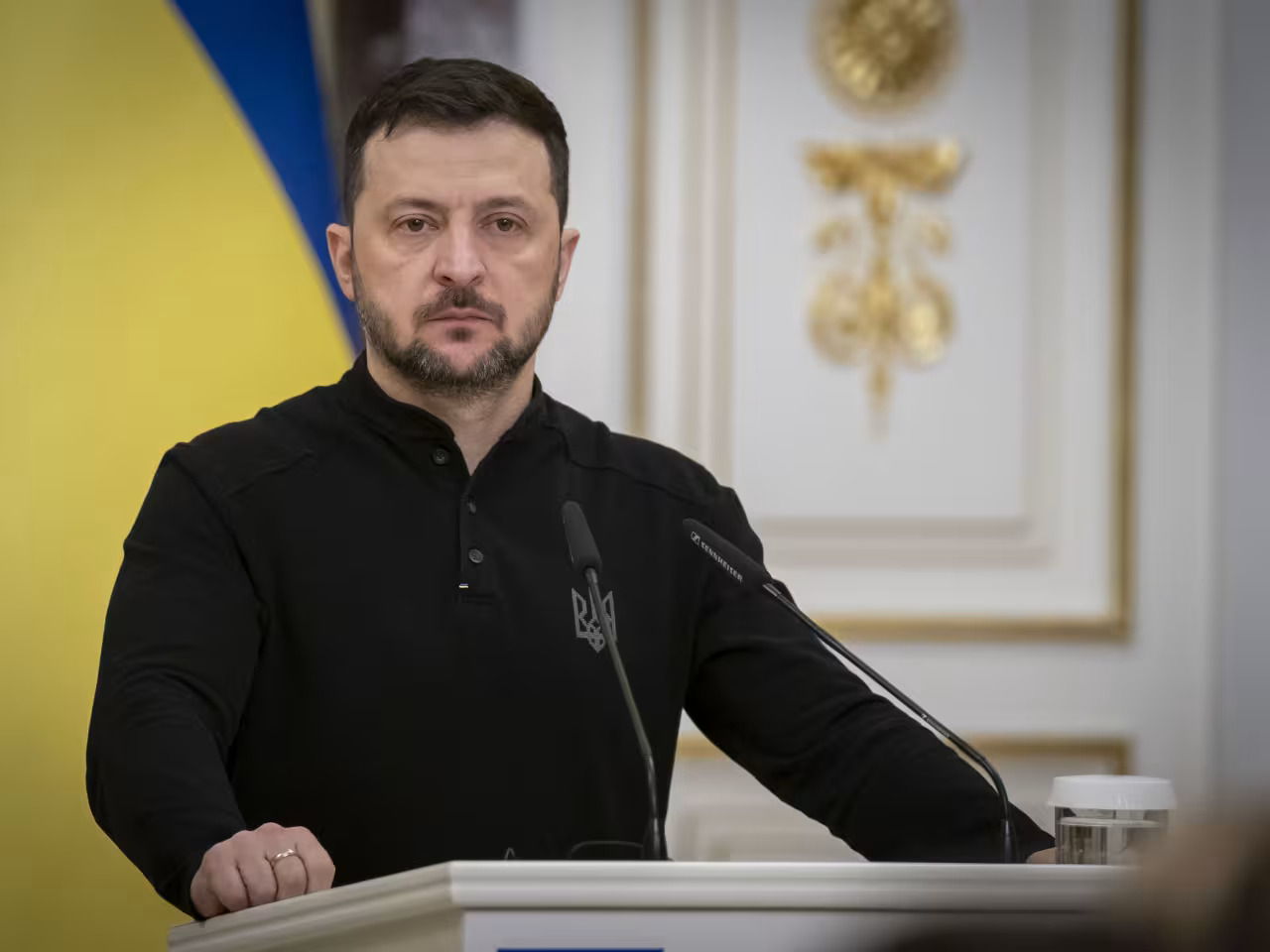Ukrainian President Volodymyr Zelensky has recently shifted his stance on negotiations to end the war with Russia, marking a notable change in his previously firm position of fighting for every inch of Ukraine’s territory. While he had earlier insisted that talks could only begin once Russia withdrew all its troops, Zelensky is now focusing more on ensuring Ukraine’s long-term security rather than insisting on the immediate return of all occupied land. His new approach comes amidst worsening battlefield conditions and uncertainties regarding continued U.S. support under the incoming Trump administration.
Zelensky’s change in rhetoric has been carefully worded, and he has not explicitly agreed to territorial concessions. Despite Russia’s occupation of more than 20% of Ukraine, Zelensky is now prioritizing security guarantees, including NATO membership and potentially the presence of Western peacekeepers, to deter future Russian aggression. His approach is seen as a tactical move to align more closely with Trump’s focus on ending the conflict, while also seeking to secure Ukraine’s future security.
In meetings with Trump and European leaders, Zelensky has expressed the need for lasting peace, with NATO membership as a key goal. He has also acknowledged that a ceasefire could be possible if Ukraine receives NATO membership, with the possibility of territorial disputes being resolved diplomatically in the future.
However, NATO membership remains uncertain due to political divisions within the alliance, including objections from Russia-friendly nations like Hungary and concerns among key members such as the U.S. and Germany.

Zelensky’s shift in tone may also be a strategic effort to maintain U.S. and European support, as many doubt that Russian President Vladimir Putin is willing to negotiate while his forces are still making territorial gains. Some speculate that Zelensky is adjusting his position to appeal to Trump’s White House, ensuring continued U.S. backing if Putin rejects talks.
However, European allies are concerned about the possibility of diminishing support for Ukraine, and they stress the importance of Ukraine negotiating from a position of strength, which currently remains elusive due to ongoing Russian advances.
While Putin has insisted on Ukrainian capitulation and territorial concessions, including the permanent annexation of several Ukrainian regions, Zelensky remains wary of a ceasefire without solid security guarantees. Given Russia’s history of renewed aggression, Ukraine is seeking long-term protections against future invasions.
While NATO membership seems unlikely, European allies have suggested alternative security solutions, such as a peacekeeping force, though Zelensky insists that these would not suffice without broader U.S. and European support. Ultimately, Ukrainian officials are cautiously hopeful that talks could emerge in the coming year, but they remain skeptical about the likelihood of reaching a meaningful agreement with Putin.


